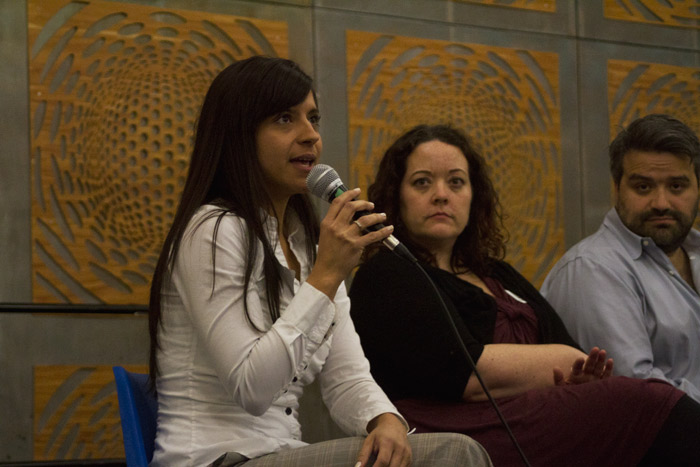On March 11, a group of approximately 30 McGill students and staff gathered together for the Students’ Society of McGill University (SSMU)’s Mental Health Forum in the SSMU Ballroom. A panel of staff representatives, from the various service departments under the umbrella of mental health care, was present, including from Counselling Services, the Mental Health Office, and the Office for Students with Disabilities (OSD). After the panellists gave short introductions, the entire event consisted of an open-mic period.
The first question was informational, inquiring how the massive increase in students seeking their services in the last few years has changed or affected the services themselves.
“The positive piece is that [with] progressive destigmatization of mental health issues […] students feel more comfortable and more at ease asking for help,” Martha Chamodraka from McGill Counselling Services pointed out.
Marianne Elmer, a former McGill student who graduated last year, commented on the long wait times that many students experiences with mental health services.
"I had to reach out to the counselling service to be able to withdraw from a course and I was appalled at how stressful and difficult it [was] to get a drop in appointment,” Elmer said. “[I rushed there to] there [to] queue up, only to see all the available slots be allocated within the first few mins of the day's intake."
A far greater demand on mental health services results in significant budgetary challenges, which forces the departments to develop creative solutions in order to maintain high levels of care provision.
OSD Director, Teri Phillips, pointed out that in order to accommodate the far greater numbers of students now registered for their services, they have initiated a model of flexibility in how they meet with students.
“Students have options around meeting with an advisor in person, through a booked appointment, or we meet with students via Skype as well,” Phillips said. “Engaging with students through those multiple means has been well-received by the students who are accessing our services.”
Phillips also mentioned the OSD’s focus on promoting other student services when appropriate. This sort of focus was common among the representatives from all the other departments as well.
Another interesting strain on resources that was brought up in the discussion was the university’s policy on the requirement of medical notes when a student is physically ill or their mental health issues have been triggered, preventing them from completing an assignment or writing an exam. It was suggested to be an institutional-level policy issue to address, but not one presenting any opportunities for imminent reform within the mental health offices. The general consensus of the student services representatives present at the forum was that health notes are a waste of valuable resources.
“When we look at a lot of the discussion today around policy and the stressors that are present in the university system, some of the policies that we have in place also act detrimentally on our ability to provide services,” Senior Director of Student Services, Robin Wiltshire, commented, “[…] If we can make the medical notes not required, that would serve the system very well.”
Phoebe Warren, U3 Arts, has used mental health servies to see a psychologist, and also raised concerns about the medical note policy.
“I was […] required to provide proof that I have been seen by a psychiatrist/psychologist in the past [in order to] use both services in my case,” Warren said. “For people who have not been officially diagnosed with learning disabilities or [who have] a history of mental health problems, I imagine this can be extremely frustrating.”
One of the primary takeaways from the forum was an emphasis on the need to integrate and streamline the various mental health services on campus. During the discussion, Wiltshire noted that there was a need to restructure the entire system to establish a common triage process between services and more importantly, to include a step-care method in treatment.
“New ideas around service delivery are very important to us to be able to meet the demand, and being more imaginative about the types of offerings that are made to students,” Wiltshire said. “More automation around appointment-making and better collaboration between the units are things we are working on improving.”
In terms of how concrete the plans for change were, Wiltshire said that there is a general deadline to launch the new integrated system for Fall 2016.
According to Jimmy Tan, U2 Neuroscience, the forum was a step forward in ameliorating McGill’s mental health services.
“If we want to transform the landscape of mental health at McGill, we need to start working together as a team,” Tan said. “It can no longer be a phenomenon where clinicians work in one office, students work in another, and faculty works in the other office down the street, and then we meet once every year to catch-up. It needs to be an ongoing collaborative process—and I think the forum was doing just that.”









